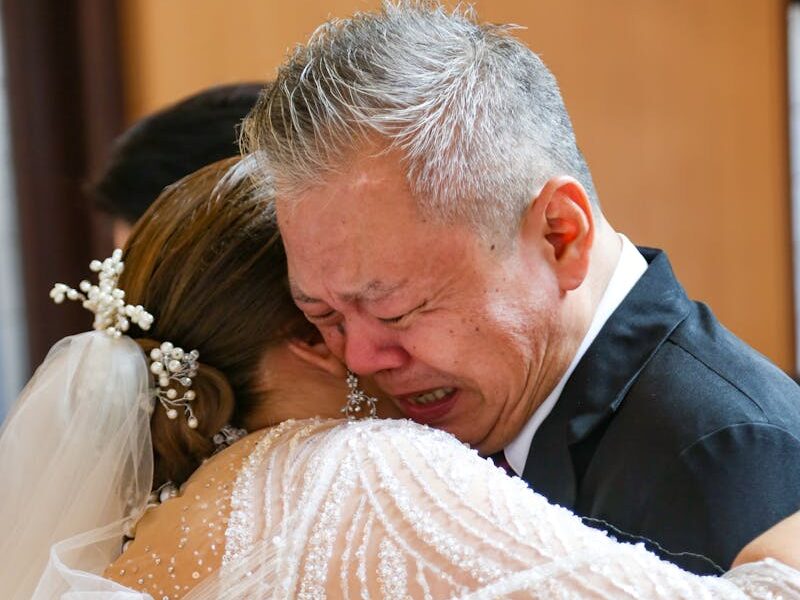
Love should make you feel safe, valued, and supported. But toxic relationships twist that promise. They start with passion, charm, or intensity, but gradually slip into patterns of control, disrespect, and manipulation. Seeing these signs clearly is painful, but it’s also the first step toward freedom.
You Feel Drained Instead of Energized

Relationships should feel like a safe harbor, but in a toxic one, they feel like constant battlefields. Instead of recharging you, time together leaves you exhausted. Even simple conversations feel like work, as though you’re always bracing for the next criticism or argument. You may notice that after spending time with them, you’re more anxious, tense, or sad than before.
Your Needs Are Constantly Ignored

Every healthy relationship runs on compromise, but toxic dynamics tilt the scale one way. Your needs—whether it’s emotional support, physical affection, or even simple respect—take a back seat while theirs dominate the relationship. When you express discomfort, you’re brushed off as being “too sensitive” or “demanding.” Over time, this dismissiveness teaches you to silence yourself. You stop asking for anything, because you’ve learned it won’t matter.
Arguments Never Resolve Anything

Conflict is natural, but in a toxic relationship, fights don’t end in resolution—they spiral into blame, manipulation, or silence. You may find the same issue resurfacing again and again, because instead of listening, your partner deflects or escalates. Even when you think you’ve “made peace,” the problem returns, often worse. This endless cycle leaves you walking away from arguments feeling confused and unheard, like you’re fighting a battle no one wants to win.
You Feel Like You’re Walking on Eggshells

Instead of relaxing and being yourself, you’re constantly calculating your words and actions. You second-guess jokes, hide your opinions, and change your behavior to avoid triggering their anger. Even small, innocent mistakes can spark outsized reactions, leaving you on edge. The anxiety builds until the relationship feels like a minefield, where one wrong step could blow everything up. This isn’t love—it’s fear disguised as love.
They Control Your Freedom

Control rarely begins as obvious chains. It starts with disguised concern—“I just worry about you” or “I don’t like that friend, they’re a bad influence.” Soon, they want to know where you are at all times, who you’re talking to, and why you didn’t answer right away. At first, it feels like protectiveness. Eventually, it feels suffocating. Toxic partners blur the line between care and control until you feel guilty for making independent choices.
Criticism Outweighs Kindness

In healthy relationships, encouragement outweighs criticism. But in toxic ones, negativity dominates. Instead of celebrating your wins, they nitpick your flaws. Instead of lifting you up, they drag you down with sarcasm, insults, or backhanded comments. Over time, their voice becomes your inner critic—you start questioning your intelligence, appearance, or worth because their criticism echoes in your head.
You Can’t Rely on Them

Love isn’t about grand gestures; it’s about trust in the little things. But in toxic relationships, promises are broken so often that you stop expecting follow-through. They say they’ll be there, but they don’t show up. They promise to change, but nothing shifts. They talk about commitment, but their actions betray disinterest.
You Feel Guilty for Everything

In toxic relationships, blame rarely falls where it belongs. Instead, it’s twisted back onto you. No matter what happens, you’re somehow at fault. They raise their voice? It’s because you “pushed their buttons.” They break a promise? It’s because you “expected too much.” Slowly, this conditioning convinces you that you’re the problem. You start over-apologizing, shrinking yourself, and carrying shame for things you didn’t cause.
Your Boundaries Are Repeatedly Crossed

Boundaries are the foundation of respect. But toxic partners treat them as obstacles to override. Maybe you say no, but they push until you cave. Maybe you set a line, but they mock it or minimize it. Over time, you stop enforcing your boundaries because it feels pointless. This doesn’t just breed resentment—it teaches you that your comfort and safety don’t matter. The more your boundaries are crossed, the more powerless you feel, until you lose trust in your ability to protect yourself.
Jealousy Turns Into Possessiveness

A small amount of jealousy can be normal, but in a toxic relationship, it spirals into obsession. Innocent conversations with coworkers spark accusations. Social media activity becomes grounds for interrogation. They may even try to control how you dress, where you go, or who you spend time with. At first, you might mistake it for passion—“they must care so much.” However, real love doesn’t chain you to suspicion.
They Use Silence as a Weapon

Disagreements are inevitable, but in toxic relationships, silence becomes a punishment. Instead of resolving issues, they shut down completely, withholding affection or communication until you beg for forgiveness. Days can go by in this tense limbo, where you feel invisible and desperate for any scrap of attention. The silent treatment is powerful because it creates fear of abandonment, and you’ll do anything to break it.
You Lose Yourself in the Relationship

Over time, you notice you’re not the same person anymore. The hobbies, friendships, and dreams that once defined you have faded. Instead, your life revolves around managing the relationship. You change how you talk, how you act, even how you think, just to keep the peace. At first, it feels like a compromise. Eventually, it feels like erasure. The scariest part is how easy it is to forget who you were before.
Respect Feels One-Sided

Respect is the bedrock of love. But in a toxic relationship, it flows in one direction. Your opinions are dismissed, your feelings minimized, your choices undermined. Meanwhile, you’re expected to respect their needs without question. This imbalance turns the relationship into a hierarchy—you beneath them, always proving your worth. Respect isn’t optional; it’s essential. When it’s stripped away, love becomes hollow.
You’re Afraid to Imagine the Future

The thought of forever with them doesn’t inspire excitement—it fills you with dread. You picture years of the same fights, the same exhaustion, the same pain, and it feels suffocating. Even when you dream about the future, it’s hard to imagine happiness because deep down, you know nothing will change. That fear is your intuition screaming for attention. If the future looks more like a prison than a promise, the relationship is already over, whether you admit it or not.
Deep Down, You Know You’re Unhappy

Perhaps the hardest truth to face is the one you already know: you’re not happy. You might bury it under excuses, point to the good days, or convince yourself this is just what relationships are. But when you’re honest with yourself, the heaviness outweighs the joy. Happiness isn’t supposed to be rare—it’s supposed to be the foundation. If your gut tells you that this isn’t love, listen.

